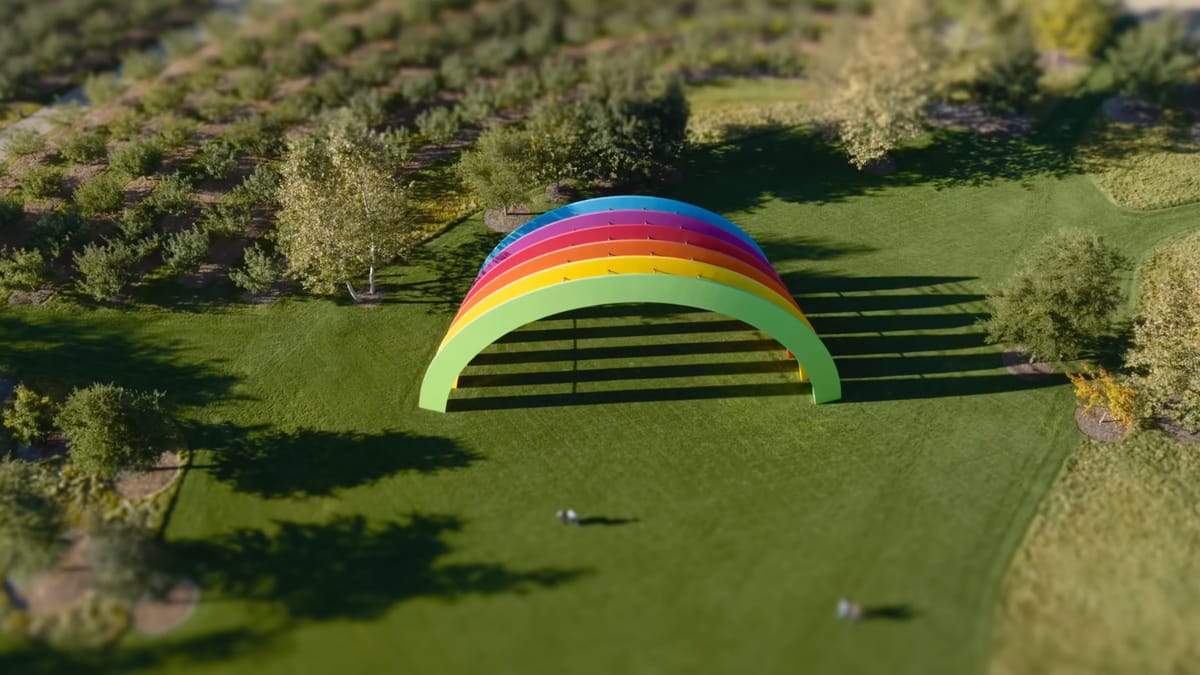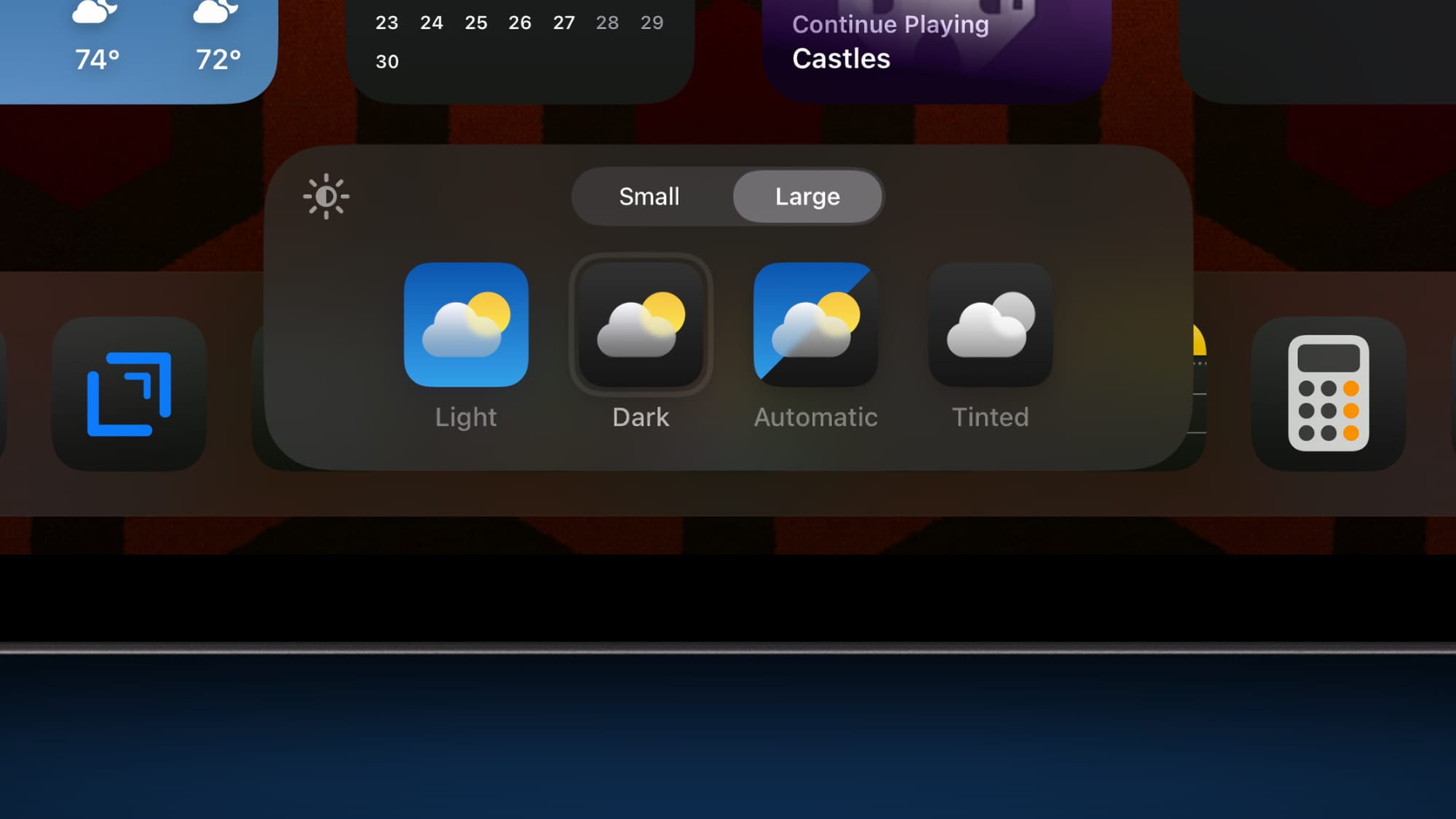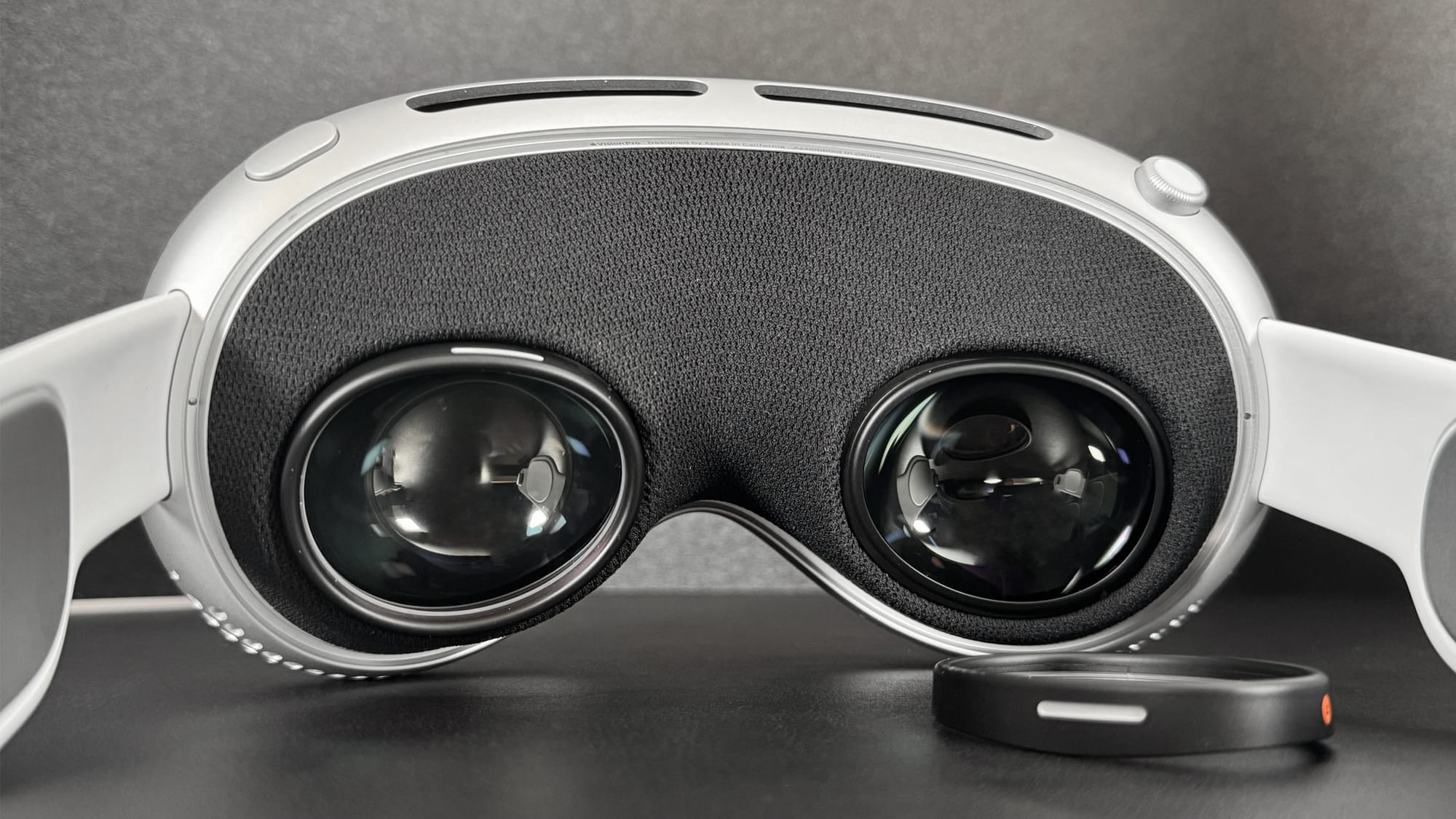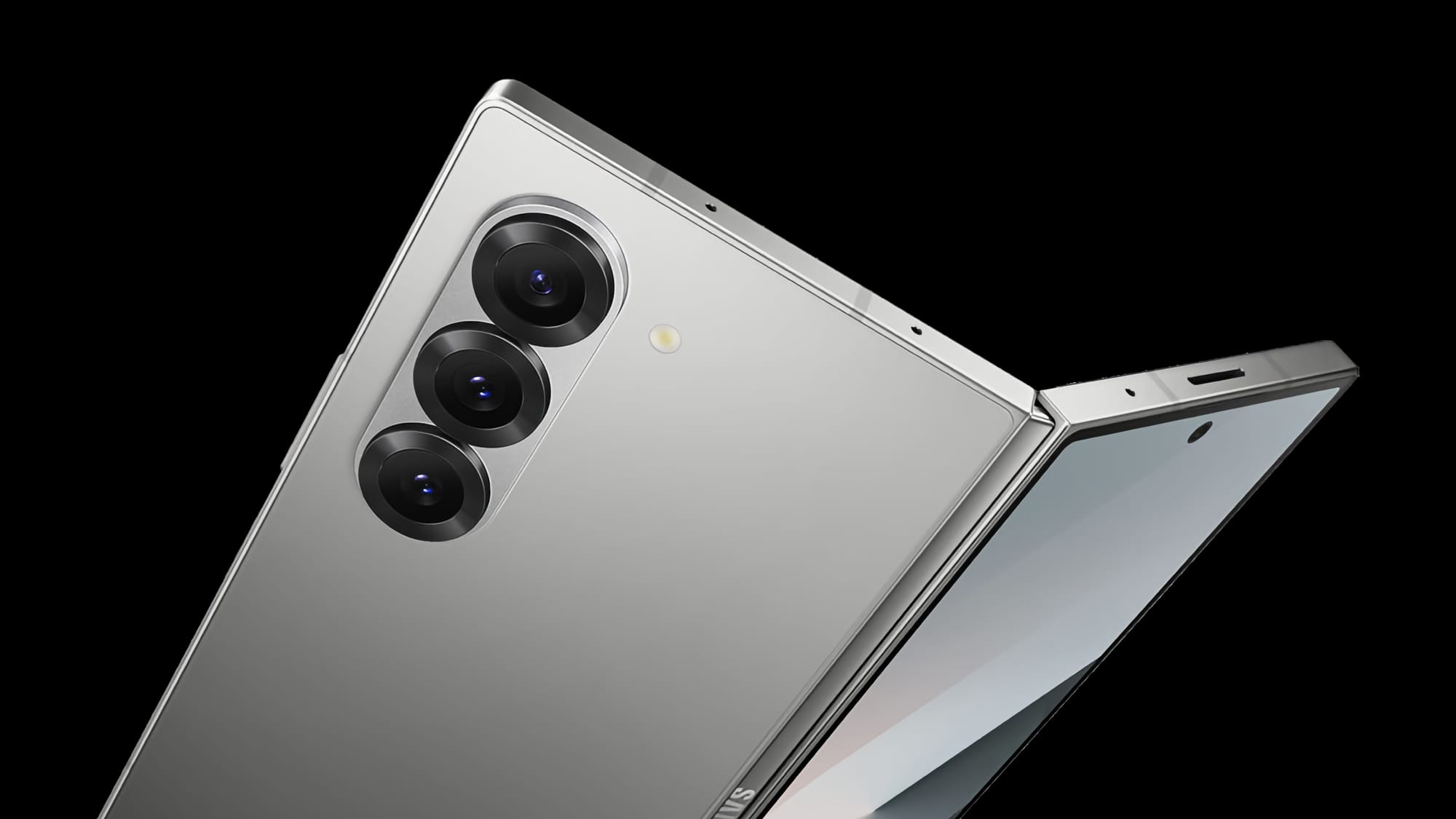Apple's week April 18: waiting for WWDC

As everyone gets their invitations to attend WWDC in person, more rumors pour in about what we can expect. As always, it seems people's wish lists are feeding the frenzy.
A new rumor suggests iPadOS 19 could get new features focused on productivity. Given that last year had almost nothing for the platform, 2025 could mean significant changes.
There's also plenty of talk around Apple product rumors like Apple Vision Pro and iPhone Fold. William and I dive into a lot of these topics on the AppleInsider Podcast episode released this week.
iPadOS 19
A rumor suggests that Apple could make iPadOS 19 more "Mac-like" with improvements to multitasking, productivity, and app management. This feels like one of those low-hanging fruit rumors that are more of a guess than based on anything solid.

Apple has had a pattern these past few years, really since iPadOS was split from iOS, where significant changes to iPadOS occur every other year. I have no idea why Apple can't multitask and release significant revisions across all of its platforms each year, but you can't throw money at an engineering problem and expect things to change.
Regardless, 2024 was barely a year for iPadOS. Nothing changed about any of its exclusive systems beyond some new handwriting recognition tools and a couple of new apps. Of course, the new customization options introduced with iOS 18 were also included with iPadOS 19, which was a thankful surprise considering Apple's reluctance to do so previously.
I expect 2025 will see significant changes to how Stage Manager works. Yes, that thing isn't going anywhere, but I am willing to bet Apple finds a way to use auto-scaling to improve window re-sizing and positioning. There's no real reason why iPadOS shouldn't also get the window tiling feature introduced with macOS Sequoia.
Beyond that, whatever redesign Apple introduces for iOS 19 that brings the OS closer to visionOS will undoubtedly come to iPadOS 19. Let's hope they continue the trend of keeping those features uniform across the platforms.
The future of visionOS
We've heard a lot about Apple Vision Pro in the last couple of weeks. Apple could launch a second-generation model with titanium and a lower-cost model in 2026. But that's the least interesting news of the week.

Apple CEO Tim Cook is allegedly laser-focused on getting Apple Smart Glasses to become a reality. Apple Vision Pro and visionOS are the way there, but the question is: how long will it take?
Things are moving fast thanks to artificial intelligence (bad name, good tech when used appropriately). Everything we need to make smart glasses work, in the most basic sense, existed in 2012 when Google Glass was revealed. In the time since, technology has gotten much faster and smaller. Plus, smart glasses don't need to do the work since they're connected to a smartphone, for now.
Apple doesn't have anything in the glasses space just yet, and may not for a while. While it could easily release a Meta Ray-Bans equivalent, which are just AirPods with sunglasses frames, I doubt they'd want to.
Prototypes of all kinds keep surfacing, but there's no real product on the market that customers can buy. There are likely plenty of bugs to work out, and the price may still be prohibitive.
That said, after seeing Android XR demoed, I think we're within a year of something launching on that end. If you haven't seen this incredible demo of a working set of smart glasses using Android XR, check it out.
Sure, it's a tech demo for a product you can't buy. But that doesn't make it any less cool. There are questions about how long it keeps "memory" about what you've seen, and how often it may hallucinate, but those are problems for a final product.
I could easily see Apple using technology available today to release a set of similar glasses that connect to iPhones. The feature set would likely be very limited, but I doubt the price would be too extravagant either.
That said, Apple will likely wait until it at least gets the next generation of Apple Vision Pro out, plus a lower-priced model, before it starts playing with the AR realm. Cook likely has ambitions well beyond the tiny image shown in the demo embedded above.
iPhone Fold
Leaks continue to show up about an alleged iPhone foldable that could arrive in 2027. I'll believe it when I see it.
If you don't know why I'm still skeptical about an Apple foldable ever existing beyond testing, there are a few reasons.

First, foldables are a fad. They exist because they genuinely look cool and nerds go crazy for something modular and futuristic. But their fragility and incredible cost drove them to become a very niche market.
Second, the problem foldables are trying to solve has already been overcome by other, more versatile technology. Mixed reality, VR, AR, etc. will all enable users to compute on infinite canvases not confined to a single small physical display.
Finally, even if Apple somehow overcomes all of the challenges in designing the "perfect" foldable, the market will likely have moved on. See previous section on Apple Glasses and how the market is moving.
Apple Ads
William and I had a discussion about ads in the AppleInsider+ segment of the podcast, so I won't rehash what's in there. But I did want to reiterate my thoughts of how Apple could enter the wider internet ad business, even if Apple fans might hate the idea.

Apple made a simple update to its naming for its ad service from "Apple Search Ads" to "Apple Ads" this week. It's meant to reflect Apple's use of ads across the App Store and Apple News, not some kind of strategy shift. However, Google could be forced to separate out its ad business and open things up for competitors.
I would love to see a web powered by thoughtful ads that rely on minimal data collection. Apple's principles applied to website monetization strategies would be a dream for those of us that rely on such methods to make money online.
I've always hated that Google, Meta, and Amazon pretend they need every bit of data in the universe to know how to advertise to a person online. It's plain stupid and clearly just an excuse to get data for their own needs – like AI training.
At the least, Apple could help return the web to some sense of sanity. Use basic inference to show ads, not user data. Like, is it a gaming website? What's the general demographic of users at this time of day? Just basic billboard type stuff. It's worked for decades outside the web, there's no reason why it can't work online too.
Apple Intelligence training
Apple will start allowing users to opt into Apple Intelligence training using on-device user data, but in a way that preserves user privacy and data security.

I like Apple's approach here using Differential Privacy. Users have a choice to opt in, and even when opted in, no personal data is actually used for training. It's quite smart and reinforces the idea that Apple is the only company that seems to be doing this AI business the right way.
In a separate story, developers also noticed that Apple will include their data in a bug report for Apple Intelligence training. However, it seems there is no way to opt out other than not submitting feedback at all. That's pretty awful, and I hope it is just an error or there's some kind of opt out we're not aware of. Either way, Apple needs to address it and fix it.
Also, Meta has blocked Apple Intelligence tools from working across its apps for no intelligible reason beyond the usual – the company sucks and hates its users. Apple isn't using user data to train Apple Intelligence, so the way users interact with it within Facebook or Instagram wouldn't provide Apple with some kind of competitive insight.
Yes, even with the aforementioned on-device analytic tools. Apple isn't gathering that kind of data. Meta just sucks.
Happy Easter
It's been a rough few weeks for plenty of reasons I don't need to get into here. Hope everyone has a good holiday weekend whether you celebrate the holiday or not. Enjoy time with your family and friends, and I'll be back next week with more thoughts on Apple and tech.
